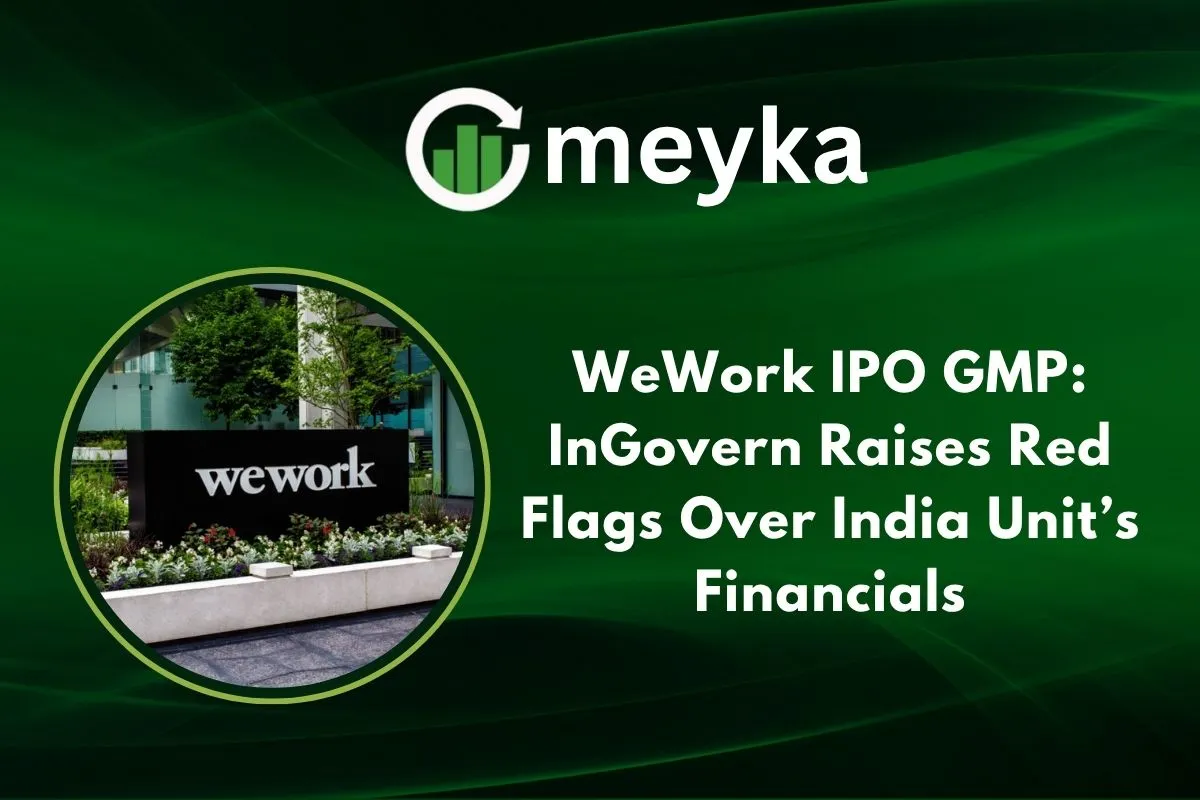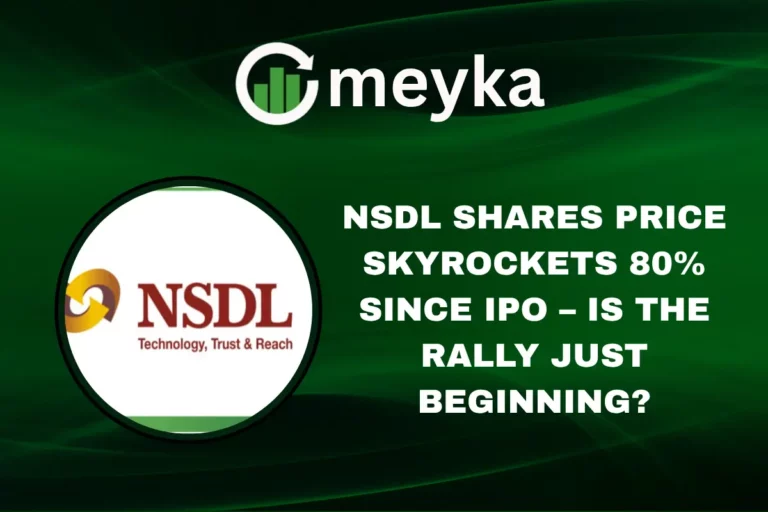WeWork IPO GMP: InGovern Raises Red Flags Over India Unit’s Financials
WeWork India is aiming to raise about ₹3,000 crore through its upcoming IPO, which has stirred much excitement in India’s capital markets. But just as the hype builds, a governance advisory firm called InGovern Research Services has sounded serious alarms. They question how transparent WeWork India’s financials and disclosures are. We want to walk with you through this mix of optimism and caution. We’ll look at how WeWork is reentering public markets, what exactly InGovern is flagging, how grey market premiums (GMP) are behaving, and what this might mean for trust in the IPO.
WeWork’s IPO Revival: Background and Current Context
WeWork’s story has been turbulent. Its attempt to go public in 2019 failed amid governance issues, overvaluation, and rising losses. After multiple restructurings and changes in ownership, the company has been trying to regain stability.
In India, WeWork operates via a license agreement (with the Embassy Group being a major stakeholder). The Indian arm is now trying to list via an Offer for Sale (OFS), that is, existing shareholders will sell shares rather than issuing new ones. The IPO shares are being offered in a price range of ₹615 to ₹648 each.
Because no fresh capital flows into the company, its financial health and disclosures become especially critical. The success of this IPO depends on how much trust investors place in what’s already on paper.
Understanding WeWork India’s Role
WeWork India runs flexible office spaces in multiple big Indian cities, Bengaluru, Mumbai, Delhi NCR, Pune, Hyderabad, and others. The unit is important because it contributes to the global brand’s perceived strength in emerging markets.
As per reports, WeWork India’s revenues have grown at a compound annual growth rate (CAGR) of ~22% between FY23 and FY25. But this growth has come with warnings: high lease costs (making up over 43% of revenues) and negative cash flows are being flagged as serious stress points.
InGovern also points out that the reported profit for FY25 was largely driven by deferred tax credits, not by purely operational gains. These nuances matter because they affect how real the profitability is.
InGovern’s Red Flags: What’s Being Questioned?
InGovern’s report dives into several key concerns. Here are the most notable:
- Proceeds go only to promoters / no fresh infusion: Since the IPO is purely an OFS, WeWork India itself will not receive any funds. Instead, all proceeds go to existing shareholders, especially Embassy Buildcon LLP and WeWork International.
- Pledge reversal risks: Before the IPO, over 53% of promoter shares were pledged for borrowings. These pledges were temporarily revoked for the IPO. If listing does not happen, they may have to be re-pledged, which could impact promoter stability.
- High cost structure: Lease costs and other operating burdens remain steep, putting pressure on margins, especially if demand doesn’t scale fast.
- Disclosure gaps & governance risk: InGovern warns of “serious gaps” in the disclosures, promoter litigations, and risks to the “fit-and-proper” status under SEBI rules.
- Dependency on non-operational income: The FY25 profit’s reliance on tax credits instead of core business earnings raises questions about the sustainability of profits.
These red flags don’t necessarily rule out success, but they serve as warning signs. We have to weigh them against growth potential.
IPO Grey Market Premium (GMP) and Investor Sentiment
GMP is an unofficial indicator reflecting how much people are willing to pay in grey market trades above the issue price. It gives a sense of investor appetite before a formal listing. Before the subscription opened, WeWork India’s GMP was around ₹15 premium over the issue price. But quickly, the enthusiasm cooled. By the second day, GMP fell sharply, reports suggest it dropped to a modest ₹5 or even near flat (zero).
By Day 2, the IPO subscription stood at about 13% overall. Retail investors have shown more interest (≈ 37% subscription in their reserved portion), but institutional uptake remains low. At the time of writing, GMP is tracking around 0.77% above the issue price (i.e., ~₹5 premium on ₹648) in many reports. This trend suggests market participants are cautious and not betting on a runaway listing pop.
Broader Implications for Corporate Governance and Transparency
The WeWork India IPO serves as a case study in why transparency, strong disclosures, and governance matter, especially when companies pursue public listings via OFS. Startups and fast-growing firms can’t just rely on growth narratives. Investors demand clarity about ownership, cost structures, related-party deals, and risk. When red flags emerge, trust erodes fast.
Regulators and market watchers may also use this example to push for tighter rules around pledge disclosures, promoter control, and clarity in financial reporting. Over time, that strengthens the IPO ecosystem.
For investors of all sizes, the case underscores the need to dig beneath hype (and GMP); understanding what lies behind the numbers is as important as the growth story.
Conclusion
WeWork’s reentry into public markets via its India arm carries both promise and peril. On one hand, its footprint in India’s flexible workspace market is strong, and grey market interest shows some optimism. On the other hand, InGovern’s concerns highlight real risks, high costs, opaque disclosures, and promoter vulnerabilities.
If we were investors now, we’d be cautious. A healthy IPO should balance ambition with accountability. In WeWork’s case, how convincingly its promoters address the red flags will be as important as how high its GMP climbs.
FAQS:
WeWork’s IPO has mixed reviews. Some see growth potential, but others worry about high costs and unclear finances. It’s better to research before investing.
WeWork India is planning to go public soon through an IPO. It’s not fully listed yet, but the company has already opened its subscription process.
Yes, you can invest when the WeWork India IPO is open. Check official stock exchanges and your broker for updates before applying for shares.
Disclaimer:
This content is for informational purposes only and is not financial advice. Always conduct your research.






